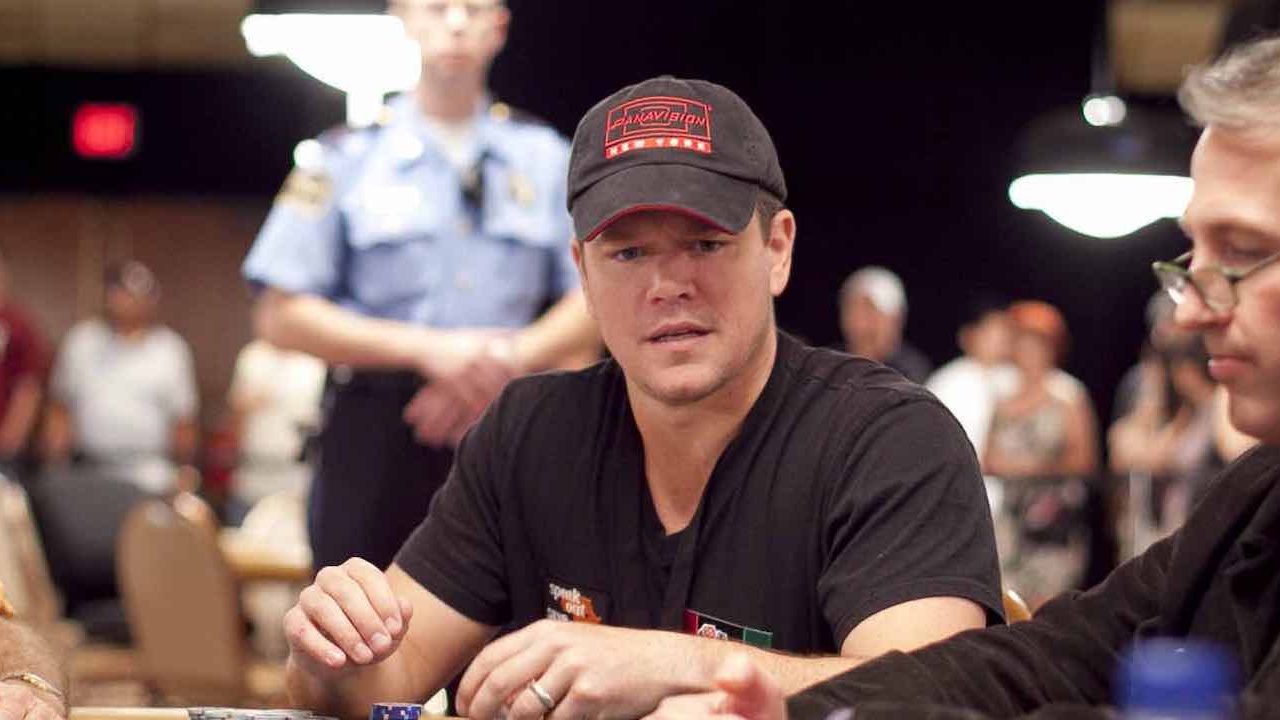While poker games were only seen by a small circle of professionals before the television revolution, television has made them a global phenomenon that has captured the attention of the general public. Let's take a look at some of the most prominent personalities who have taken centre stage and become symbols of the poker world thanks to the popularisation of television. How have they influenced its image, what made them stand out and what impact have they had on the further development of this fascinating sport?
Iconic poker moments on TV and film
Television and film have contributed greatly to the popularisation of poker in culture. One of the most memorable moments in the history of televised poker is amateur Chris Moneymaker's victory at the 2003 WSOP, which kick-started the poker boom. His triumph on ESPN showed that success was possible for anyone, making poker more accessible.
In cinema, poker has also become a central motif in many films. The 1998 cult classic "Rounders" starring Matt Damon and Edward Norton offers perhaps the most realistic depiction of high stakes poker and themes such as loyalty, risk and redemption to date. The Bond film "Casino Royale" uses poker betting as a key plot element, further cementing poker's status in popular culture. This film broke a kind of imaginary poker taboo and presented it as a prestigious, sophisticated and psychological-logical affair that everyone wants to experience for themselves at least once in their lifetime.
The influence of celebrities on the popularity of poker in the mainstream
Celebrities have played a key role in propelling poker into the mainstream. Celebrities from all walks of life, from sports to entertainment or business, have become close to the game and have publicly supported it. Their active participation not only attracted media attention, but also inspired the general public to get involved in the game. Poker as such was made famous primarily by actors such as Ben Affleck and Tobey Maguire. However, celebrity influence was not just about the game itself. Many became ambassadors for poker platforms and brands, helping to promote the game in mass campaigns. These collaborations helped to remove the negative stereotypes associated with poker and showed it as a legitimate and fun activity.
In addition, celebrity poker tournaments have become a popular format that attracts a wide audience while supporting charitable initiatives. These events showcase the social and philanthropic side of poker and improve its public image, thereby expanding its popularity. The association of poker with influential personalities has made the game more than just a game of chance, it has become a recognised and attractive activity.
The growing popularity of poker in the media environment confirms its enduring appeal and adaptability. From early portrayals in film and television to the expansion of online platforms and the influence of celebrities, poker has been able to adapt to the changing trends of popular culture. Its ability to grow and stay relevant has secured its place in the hearts of enthusiasts around the world.

As poker continues its evolution, it will face new challenges and opportunities. The integration of technology, the influence of new media and the changing preferences of players will shape the future of the game. But one thing remains certain - poker will retain its place in pop culture and its popularity will continue to grow.
Poker, once the preserve of elite casinos, has now become a global phenomenon thanks to the media. Television has brought the game into homes and revealed its strategic depth, while the personalities of the players have added a special charm. This rise has helped poker shed its myths and elevate it as a game of extraordinary skill. Poker continues to grow, adapting to new media and never ceasing to intrigue. Its ability to combine strategy, skill and fun ensures that it will remain a popular form of entertainment that brings people together.
Sources - Wiki, YouTube, PokerGuru, MovieWeb




